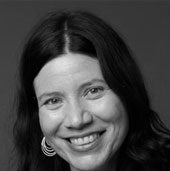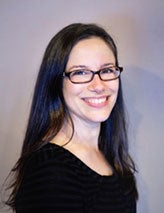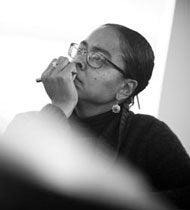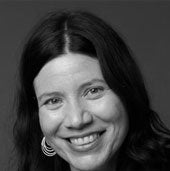March 18, at Feinstein Providence Campus
PROVIDENCE, R.I.—Feb. 12, 2016—Technology is changing the way journalists gather and write the news—and get it to readers. While the basics of journalism still exist—a good story, research and interviews—the tools reporters use now are different. Consider this: Most journalists have Twitter accounts.
The rise of new media raises the question: Does the longform essay have a future? And if it’s still alive, what’s the best way for writers to reach the broadest audience?
Award-winning journalists, writers and professors will tackle this topic at a conference on Friday, March 18 at the University of Rhode Island’s Feinstein Providence Campus, 80 Washington Street.
The conference is free, open to the public and funded by the Pulitzer Foundation as part of “What is the 21st Century Essay?” a yearlong series of programs presented by the Rhode Island Council for the Humanities to commemorate the 100th anniversary of the Pulitzer Prizes.
Former Pulitzer winners are discussing their work at more than 100 events nationwide throughout the year for the Pulitzer Centennial. Through the Campfires Initiative, a collaboration between the Pulitzer board and the Federation of State Humanities Councils, the Rhode Island council and its partners received $45,739 for local programs.
The URI conference—“The Essay in Public: The Way We Work Now”—will explore how to write research-intensive longform pieces and bring those stories to as many readers as possible. The speakers will focus on environmental and social issues at the all-day event, the first of many scheduled in Rhode Island.
“We are motivated to act in the face of natural disasters such as Hurricanes Katrina and Sandy, as well as preventable disasters such as the one presently unfolding in Flint, Michigan, by investigating problems and solutions,” says Martha Elena Rojas, an associate professor of English at URI and Essay in Public co-founder. “Longform writing brings the research and careful investigation that these complex issues demand to a larger audience. This kind of writing is vital to our future, and it is the very future of this public work that we will explore.”
The two keynote speakers are Stephen Henderson, editorial editor of the Detroit Free Press and 2014 winner of the Pulitzer for commentary, and Sarah Schweitzer, a feature writer for The Boston Globe and 2015 finalist for the Pulitzer in feature writing.

Two URI professors will participate in a roundtable discussion in the morning and an informal discussion during a lunch break:
Sunshine Menezes is associate director of the Office of Marine Programs and executive director of the Metcalf Institute for Marine and Environmental Reporting at URI’s Graduate School of Oceanography. The institute helps journalists and scientists become better science writers. Menezes received a doctorate in biological oceanography from the GSO and was a Rhode Island Foundation Fellow.
Kendall Moore is an award-winning documentary filmmaker and an associate professor in the departments of journalism and film media in URI’s Harrington
School of Communication and Media. Before joining academia in 2003, she worked as a field producer and reporter with ABC News/Discovery Health, the Discovery Channel and as a health and medical reporter for Reuters. Her films focus on issues of race, health, the environment and gender, and have appeared on PBS and in many film festivals.
 They will be joined by Ambar Espinoza, environmental reporter at Rhode Island Public Radio; Alisha Pina, statewide reporter for The Providence Journal; Matthew Pratt Guterl, who teaches about race relations in America today as a professor in the departments of Africana Studies and American Studies at Brown University; Lucas Mann, assistant professor of English at the University of Massachusetts Dartmouth and author of Class A: Baseball in the Middle of Everywhere.
They will be joined by Ambar Espinoza, environmental reporter at Rhode Island Public Radio; Alisha Pina, statewide reporter for The Providence Journal; Matthew Pratt Guterl, who teaches about race relations in America today as a professor in the departments of Africana Studies and American Studies at Brown University; Lucas Mann, assistant professor of English at the University of Massachusetts Dartmouth and author of Class A: Baseball in the Middle of Everywhere.
Besides Rojas, the other conference organizers are Wendy S. Walters, associate professor at the Eugene Lang College of The New School, and Patricia Ybarra, chair and associate professor of Theatre Arts and Performance Studies at Brown University.
People attending the conference are asked to register at www.essayinpublic.com. For more information, contact martharojas@uri.edu or visit the Rhode Island Council for the Humanities http://rihumanities.org/program/pulitzer.
Pictured above (top to bottom):
Martha Elena Rojas, an associate professor of English at URI. Photo courtesy of Martha Elena Rojas.
Sunshine Menezes, associate director of the Office of Marine Programs and executive director of the Metcalf Institute for Marine and Environmental Reporting at URI’s Graduate School of Oceanography. Photo courtesy of Sunshine Menezes.
Kendall Moore, associate professor in the departments of journalism and film media at URI’s Harrington School of Communication and Media. Photo courtesy of Kendall Moore.

